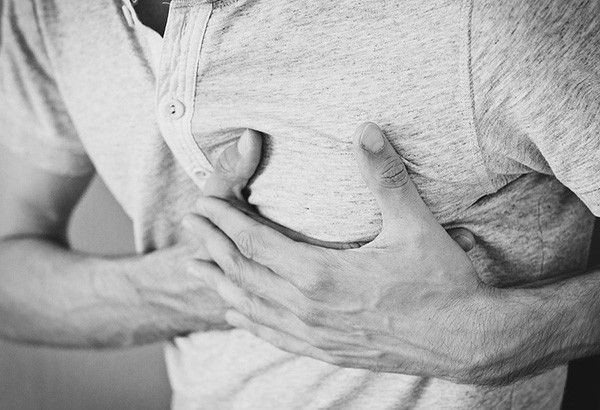World Heart Day: How to protect yourself from heart attacks

MANILA, Philippines — Heart attacks, known as the “silent killer," are a result of the build-up of fat, cholesterol and other substances in the heart’s arteries, blocking the blood flow and therefore cutting the supply of oxygen and nutrients to the body. Most people who suffer from a heart attack have some form of coronary heart disease.
To this day, heart diseases still pose as a serious threat to millions of Filipinos. The Philippine Statistics Authority found that Coronary Heart and Artery Disease is the top cause of death in all regions in the Philippines, including North Luzon. A total of 14,658 deaths were recorded in the region in 2011 by the Department of Health. In a study they conducted in 2009, the number of lives claimed by cardiovascular diseases in the Philippines has doubled from 85,000 to 170,000 after 20 years.
Being informed about heart attacks has never been more important; you never know when a heart attack will strike you or someone close. As shared by Dr. Domicias Albacite, Head of the Cardiovascular Center in The Medical City Clark, here are some things you need to know about heart attacks:
Genetics versus lifestyle
Which of these two is the real cause of heart attacks? According to Dr. Albacite, heart attacks are partly caused by genetics but most of the time, they are greatly influenced by a person’s lifestyle. People who are smokers, inactive and unhealthy eaters are more likely to suffer from a heart attack.
He, however, noted that genetics do play a role in heart attacks. Those that occur in people below the age of 50 are most likely caused by genetics, while those that occur later are more likely caused by lifestyle.
There is no first aid for heart attacks
With heart attacks, time is of utmost importance. Almost 30% of first time sufferers of heart attacks do not make it to the hospital. This is why Dr. Albacite strongly discourages first aid as it may complicate the person’s condition when going to professional help is delayed. The moment a person suffers a heart attack, immediately call a hospital to get an ambulance.
If you are alone, quickly call the hospital or seek the help of neighbors. Make sure that you always have the phone number of the nearest and most competent hospital with you, like The Medical City Clark. For the residents of Central Luzon, The Medical City Clark is one of the most accessible hospitals that have world-class facilities and expert doctors that can expertly handle an emergency situation.
Minor heart attacks are a big deal
Not all heart attacks are life-threatening, but this does not mean the minor ones do not require attention. On some occasions, a person does not even know that they experienced a heart attack. Once you feel its symptoms, which include chest pain, cold sweats and shortness of breath, heart attacks can be triggered by physical or emotional stress. Ignoring these symptoms can result to worse and fatal conditions.
Regular check-ups are recommended as you get older
A semi-annual check-up is a good prevention for heart attacks. This is especially if you are a person at risk – if you smoke, live an inactive lifestyle, eat innutritious diet and have other unhealthy lifestyle choices. It is also good to know your family history, as those that have history of premature heart attacks could also suffer the same fate. If your family has history of heart attacks, make sure you closely monitor your body to check for signs and symptoms of heart attacks, no matter the age.
Being aware of these misconceptions can help save a life, maybe even yours. Don’t wait for a heart attack to happen before you take action; maintaining your blood pressure, adopting a healthy lifestyle by being physically active and avoiding vices such as smoking and drinking alcohol all contribute to lowering the risk of having a heart attack.
Make sure to consult right away if you experience any symptoms.



















